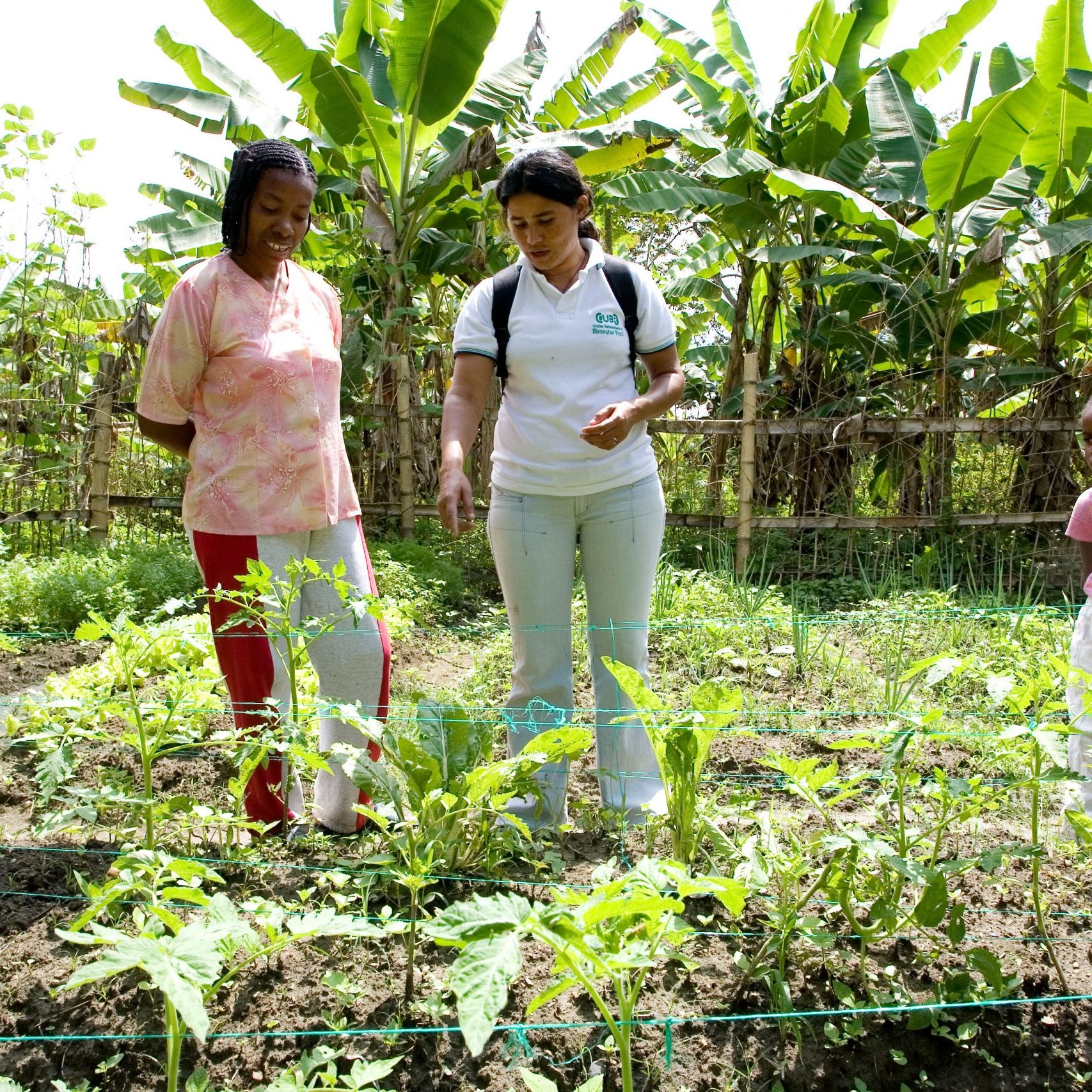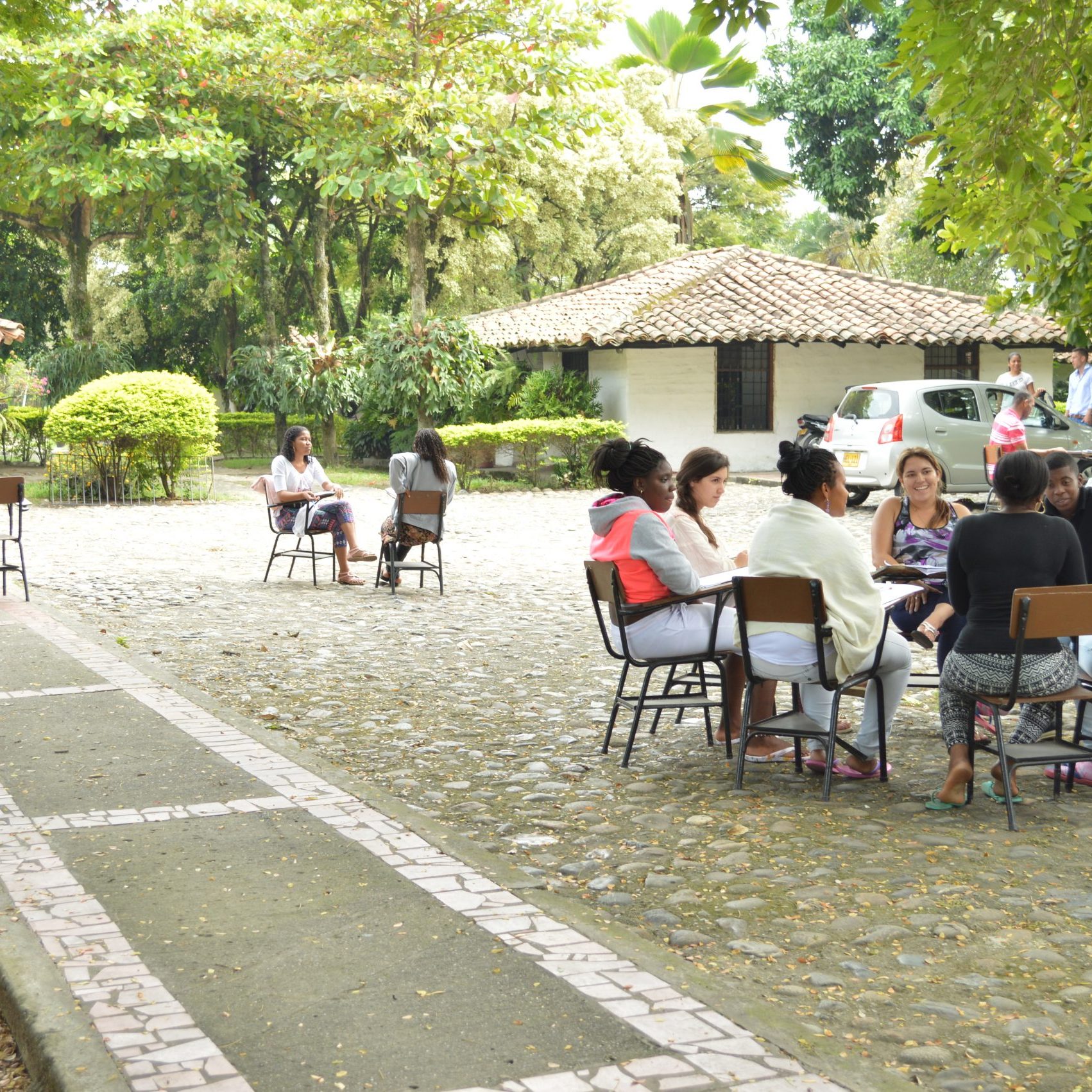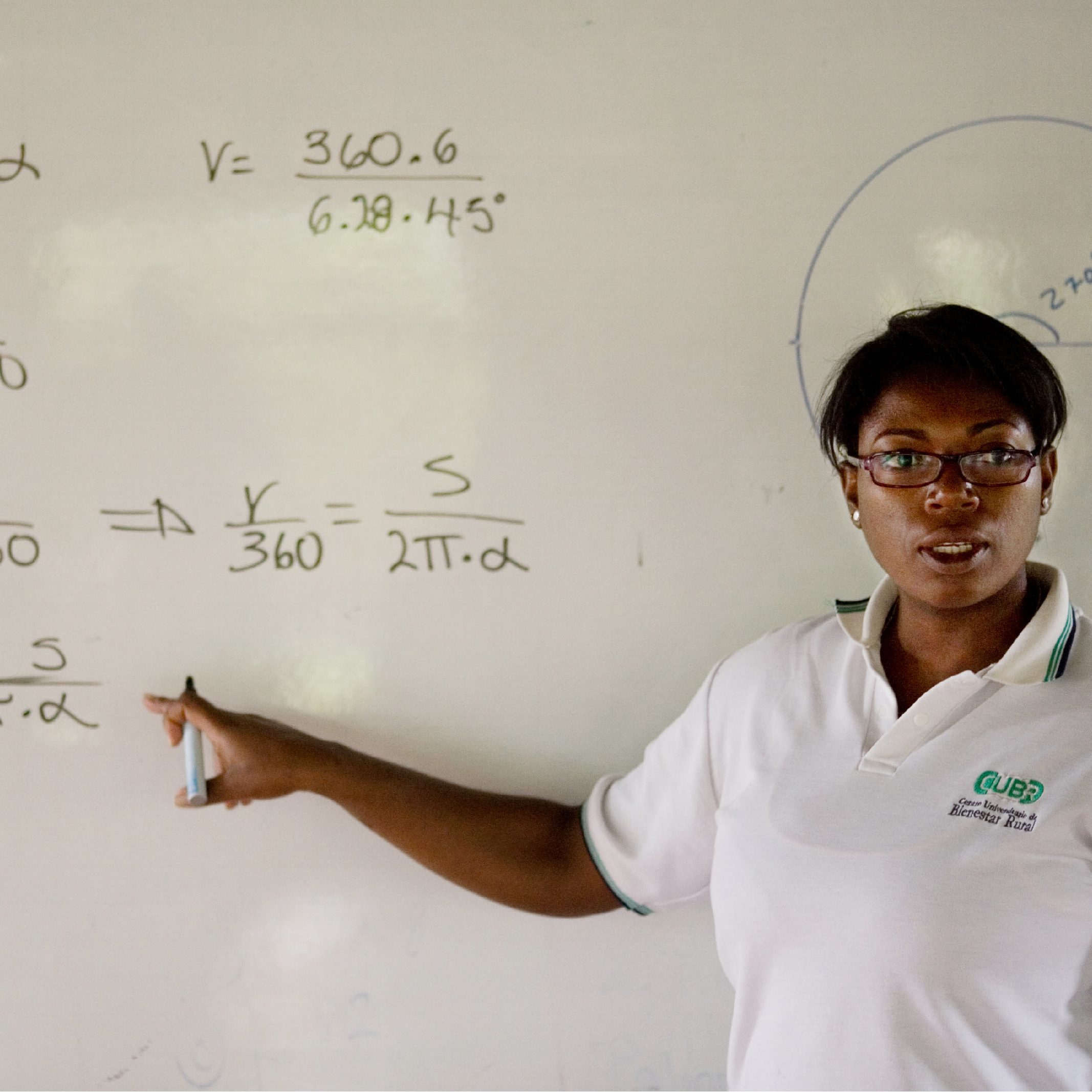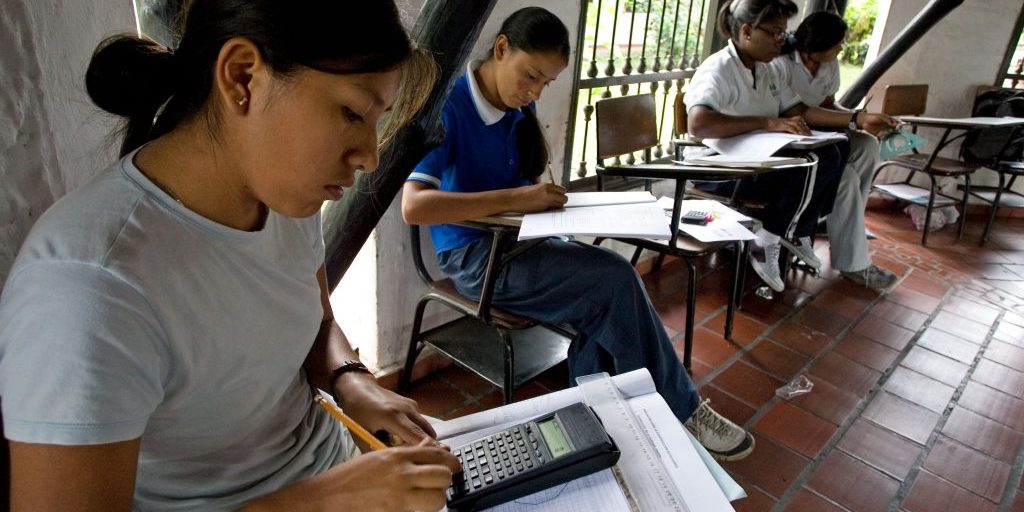
The B.Ed. in Rural Education with an Emphasis in Agriculture and Animal Sciences
The original B.Ed. in Rural Education program was well received by the sector concerned with rural education. Although rural necessarily implies agriculture and animal production—and the original B.Ed. program engages in this,—many organizations like the Comités de Cafeteros, the municipal Extension offices, and the same SAT institutions showed interest in the offering of an alternate program that would train a teacher oriented much more towards the promotion of micro-enterprise projects, which would respond to the urgent needs to transform the local economies. Thus a new program was created at CUBR which, just like the first one, received approval from the ICFES: B.Ed. in Rural Education with an Emphasis in Agriculture and Animal Sciences (Resolution No. 1067 of May 5, 2000).

The Specialization Program in Education for Development
In the face of the pressing need for educational alternatives for professionals as witnessed throughout the country, and their own expressed interest in broadening their vision of development and acquiring the tools that would enable them to become real agents of change, CUBR decided to create this Specialization program. It was to be the space in which to share the learning generated in the University for Integral Development through various decades of work in investigation and action, revolving around the search for possible and necessary ways to use education as a motor to promote the integral development of rural communities. Among other things, the Specialization student engages in an analysis of the SAT program and its intimate connection to both the productive and organizational processes set in motion by FUNDAEC through the framework of the UDI.

The Specialization Program in Strengthening Local Economies and Professional Technician Program in Administration of Local Economies
The Specialization in Strengthening Local Economies program brought together the lessons learned from FUNDAEC's experience with alternative systems and modes of production, both at the primary and secondary levels. It was initially offered to a group of university graduates at the specialization level. Some of the materials have subsequently been adapted to a two-year university program, Technician in Administration of Local Economies - a remote education program offered by the Center since 2008. This program was designed and developed within the context of the University Center for Rural Well-being understanding that the development of sustainable local economies is an indispensable aspect of meeting the material needs of people in any region. Because of its conviction that the people themselves must take ownership of their own social and economic progress, the Center focused on a program that could help students develop the skills and capacities necessary to take on these responsibilities. Graduates of this program participate specifically in community development programs aimed at promoting agriculture and livestock, agro-industry, environmental health, and the organization of community life.


Further information can be found on CUBR's website: www.cubr.edu.co


